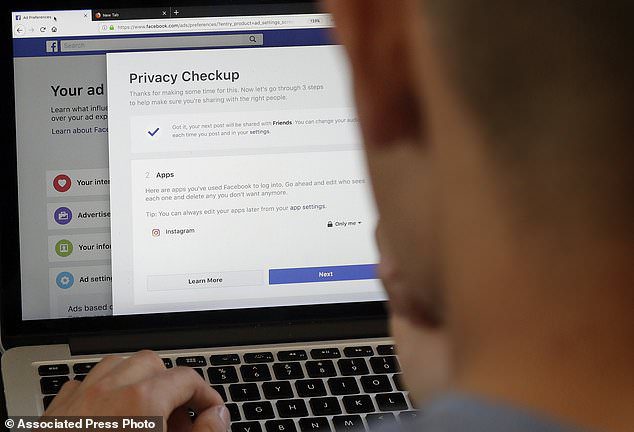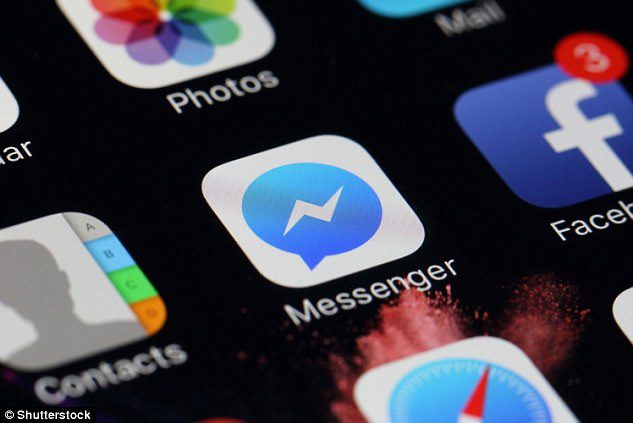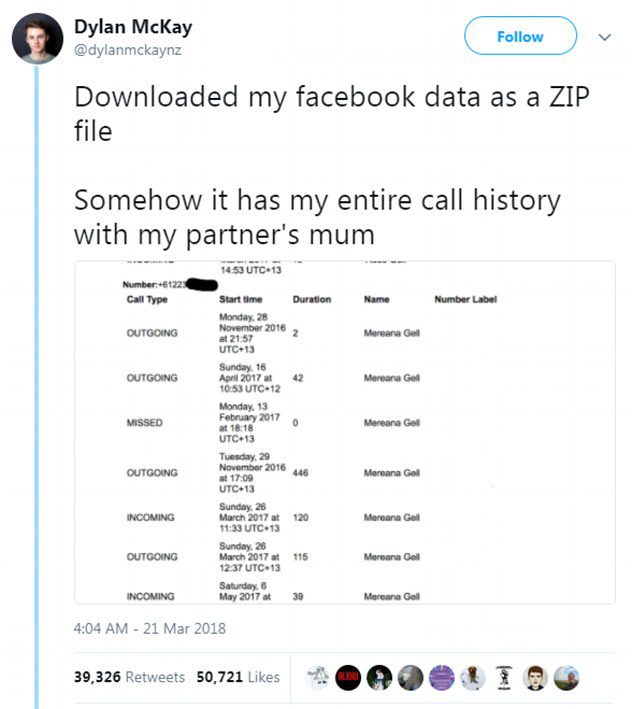Facebook scans the contents of messages that people send each other on its Messenger app, blocking any content that contravenes its rules, it has emerged.
The scandal-hit firm, still reeling from the Cambridge Analytica debacle, checks images and links for illegal or extreme content using automated systems.
What you write in your messages may also be read manually if it’s flagged to moderators for breaching Facebook’s community guidelines.
While the intentions behind the practice may be well-meaning, the news is likely to add to users’ concerns over what the social network knows about them.
It follows revelations that the Trump-affiliated consulting firm obtained data on at least 50 million unsuspecting Facebook users.
This information was used to target voters in the US, based on psychological profiling, with political adverts spreading disinformation.
Facebook is also facing criticism for collecting years of data on call and text histories from Android users.

Mark Zuckerberg, pictured here in July 2017, has admitted Facebook scans the contents of messages that people send each other on its Messenger app blocking any that contravene its guidelines
CEO Mark Zuckerberg confirmed the policy during a podcast interview with Vox’s editor at large, Ezra Klein.
Zuckerberg told his host a story about receiving a phone call from staff at his Mountain View firm.
He was informed that their systems had blocked attempts to send inflammatory Messenger instant messages about ethnic cleansing in Myanmar.
About the experience, the 33-year-old billionaire said: ‘In that case, our systems detect what’s going on.
‘We stop those messages from going through.’
The news has been met with mixed reactions on social media, with a number of users expressing concern.
Messenger says that it doesn’t use data from messages it has scanned for the purposes of advertising, according to reports in Bloomberg.
The company told the website that it uses the same tools to prevent abuse in messages that are in place on Facebook as a whole.

Messenger says that it doesn’t use data from messages it has scanned for the purposes of advertising, but that is likely to be of little comfort in the current climate, with privacy at the forefront of many Facebook user’s minds
Users are also able to flag posts or messages that they feel are in violation of the site’s house rules.
This will either cause one of the social network’s community operations team to manually review the content, or automated systems can also make decisions.
‘Keeping your messages private is the priority for us,’ a Facebook Messenger spokesman said in a statement to MailOnline.
‘We protect the community with automated systems that detect things like known images of child exploitation and malware. This is not done by humans.
‘We do not listen to your voice and video calls.’
But that is likely to be of little comfort in the current climate, with privacy at the forefront of many Facebook user’s minds.
One Twitter user, Kevin Chastain, claims to have experienced Messenger texts being used to target advertising, tweeting: ‘So I was messaging my wife about dinner tonight mentioned a particular place on Facebook messenger and then opened up Facebook about to see an ad for that restaurant.
‘Tell me they aren’t in on every convo I have. Scary!’
Zuckerberg took out full-page adverts in nine major US and British newspapers in late March to apologize for the Cambridge Analytica scandal.
In the ads, the Facebook founder vowed to clamp down on allowing third parties access to data which can be sold on.
The ads, done in the simple black text against a plain white background, were headlined: ‘We have a responsibility to protect your information. If we can’t, we don’t deserve it.’
‘You may have heard about a quiz app built by a university researcher that leaked Facebook data of millions of people in 2014,’ the apology begins.
‘This was a breach of trust, and I’m sorry we didn’t do more at the time. We’re now taking steps to make sure this doesn’t happen again.’
‘We’ve already stopped apps like this from getting so much information. Now we’re limiting the data apps get when you sign in using Facebook.’
‘We’re also investigating every single app that had access to large amounts of data before we fixed this. We expect there are others. And when we find them, we will ban them and tell everyone affected.’

Facebook says that it uses the same tools to prevent abuse in Messenger app (pictured) messages that are in place across the social network as a whole
‘Finally, we’ll remind you which apps you’ve given access to your information – so you can shut off the ones you don’t want anymore.’
‘Thank you for believing in this community. I promise to do better for you.’
The apology was formally signed off by the Facebook chief.
The Facebook data scandal deepened after users found the social network had harvested information including call logs and text messages.
Some users discovered the firm had been storing complete logs of incoming and outgoing calls and text messages.
Others reported that data such as contacts in their address books, social events in their calendars and even friends’ birthdays had been stored.
One user, Dylan McKay, reported that from October 2016 to July 2017 his logs contained ‘the data of every [mobile] call I’ve made, including time and duration’ and ‘data about every text message I’ve received or sent’.
Rather than delete an account entirely, the social media site encourages people to ‘deactivate’ their profile as this leaves all personal data on its servers.
However, when users request to permanently delete their accounts, the site suggests: ‘You may want to download a copy of your info from Facebook.’
Emma Kennedy tweeted that she had found that Facebook had recorded ‘every single phone number in my contacts.

Facebook is also facing criticism for collecting years of data on call and text histories from Android users. Facebook user Dylan McKay revealed Facebook logged every mobile call he’d ever made
‘They had every single social event I went to, a list of all my friends and their birthdays, and a list of every text I’ve sent’
‘They have plundered my phone. They have phone numbers of people who aren’t on Facebook. They have phone numbers of household names who, I’m sure, would be furious to know their phone numbers are accessible. I’m appalled.’
A Facebook spokesman said: ‘The first time you sign in on your phone to a messaging or social app, it’s a widely used practice to begin by uploading your phone contacts.
‘Contact uploading is optional. People are expressly asked if they want to give permission to upload their contacts from their phone – it’s explained right there in the apps when you get started.
‘People can delete previously uploaded information at any time and can find all the information available to them in their account and activity log from our Download Your Information tool.’
The company says an opt-out for uploading contacts is available and users can delete all uploaded contacts by turning off the continuous uploading setting in Facebook’s Messenger app.
All previously uploaded contacts are deleted when a user permanently removes their profile. Contacts will also no longer continue to be uploaded.
If you know someone who might like this, please click “Share!”
